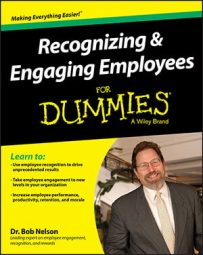After you've assigned high-potential employees real, meaningful work, the next strategy is to find them a mentor — a senior executive in the organization who can advise, coach, and counsel the HIPO. Typically, a mentor is in a different chain of command so that the relationship can have some objectivity as well as give the participants the ability to candidly discuss challenges in the HIPO's reporting relationships.
Finding the right mentor can be tricky. The personalities should fit, and each party must have adequate time and motivation to make the relationship work. Some companies use informal mixers to provide opportunity for mentors and mentees to find each other.
Here are examples of companies and industries that have successful mentorship programs:
SC Johnson has developed a Mentoring Steering Committee responsible for pairing mentors and mentees according to similarities in work experience, interest, and skills. Over a period of 18 months, pairs contribute a total of 45 hours to the commitment. All participants in the program, mentors and mentees alike, have reported a positive experience that left them with a sense of personal and professional growth.
Rockwell Collins matches mentors and high performers using a web-based program.
IBM has three distinct mentoring programs: expert mentoring, career mentoring and, for new hires, socialization mentoring.
Phillips Electronics EVP and co-COO Gerard Kleisterlee has three priorities when he travels: meet local management, meet a key customer — and lunch with a HIPO manager.
The learning and development team at Banner Health works alongside the executive office to develop mentorship programs for leaders. The result has been two effective programs that have produced hundreds of leaders:
New Leader Experience seminar: Every month, this three-day seminar is held at the company's headquarters and introduces new managers to the company's overall goals. In addition, the managers are presented with resources on how to guide employees effectively.
Leadership symposiums: These weeklong development programs give leaders the chance to renew their skills and interact with other leaders in the organization.
Does mentoring work? A five-year study of 1,000 Sun Microsystems employees found that 25 percent of mentored employees enjoyed salary grade changes, compared to only 5 percent of the control group. Those who were mentored were also promoted 6 times more often than others. Providing mentorship programs — or simply encouraging employees to assume a mentorship role — allows employees who have grown within the company or who have significant career experience to pass on what they have learned to other employees.
Many times, individuals in entry-level or mid-level roles are promising or aspiring leaders but lack the guidance and direction to achieve their goals. Employees with a desire to further develop their skills and career path are eager to learn and welcome new opportunities, something that serves any company well, especially in a downturn.

